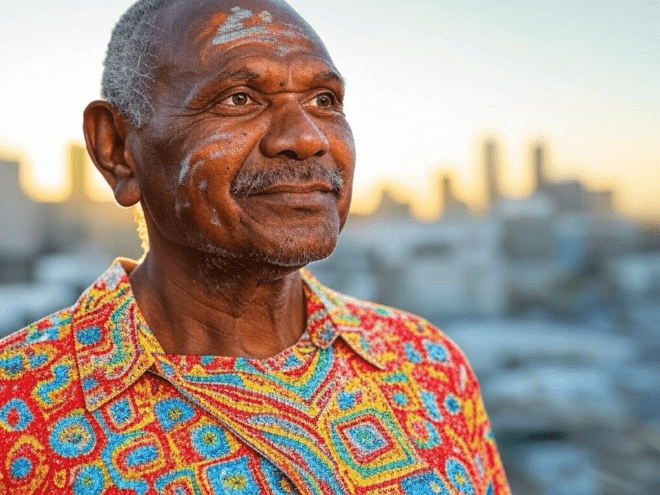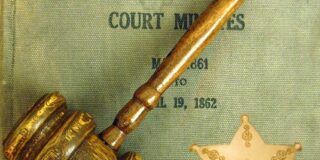
In the contemporary landscape of Australia, the so-called “history wars” that erupted during John Howard’s tenure as Prime Minister (1996–2007) stand as a powerful symbol of a deeper cultural conflict, one that extends far beyond the realm of political rhetoric. These debates are not mere academic skirmishes or partisan squabbles; they represent a profound contest over the construction of national identity, memory and historical truth. Critics argue that the history wars reflect a deliberate attempt to sanitise Australia’s past, erasing uncomfortable realities – particularly those surrounding Indigenous dispossession and colonial violence – in favor of a narrative that reinforces a cohesive, heroic national story. This post examines the origins of the history wars, their key battlegrounds, and their enduring significance as a struggle over Australia’s collective consciousness.
Origins of the History Wars
This contentious debate emerged as a reflection of deeper ideological divides within Australian society, crystallising particularly during John Howard’s time in office. His conservative vision significantly influenced the national discourse and shaped the way history was perceived and taught across the nation.
While tensions surrounding historical representation in Australia are not a novel phenomenon, they reached a crescendo during Howard’s leadership. His government’s ideological leanings, coupled with the socio-political climate of the era, provided fertile ground for the history wars to flourish. Howard, as the leader of the Liberal Party, espoused a vision of Australia that was deeply rooted in pride for its British heritage, economic accomplishments, and military valour. Central to this narrative was the veneration of the Anzac legend, a symbol of national identity that encapsulated notions of bravery and sacrifice.
However, this celebratory perspective of Australia’s past stood in stark contrast to emerging scholarship and public discourse that sought to illuminate the darker aspects of the nation’s history. Scholars and activists began to foreground the violent dispossession of Indigenous peoples, the heartbreaking legacy of the Stolen Generations, and the pervasive systemic racism that has shaped Australian society. This clash of narratives – between a patriotic portrayal of Australia and one that acknowledges historical injustices – became the crux of the history wars.
The term “black armband” history emerged as a pivotal point of contention within these debates. Coined by historian Geoffrey Blainey in 1993, the phrase was used to critique historical narratives that, in his view, overemphasised guilt and shame at the expense of fostering national pride. Blainey’s critique resonated with conservative commentators and politicians, including Howard, who embraced the notion that Australians should reject a “black armband” view of their history. In a notable speech delivered in 1996, Howard argued for a “balanced” account of Australia’s past – one that would celebrate the nation’s achievements while ostensibly downplaying its historical wrongs.
This stance however, positioned Howard in direct opposition to a growing cadre of historians and intellectuals who sought to challenge the prevailing narratives of triumphalism. Figures such as Henry Reynolds and Lyndall Ryan became prominent voices in this discourse, documenting the realities of frontier violence and Indigenous suffering. Their works called for a more nuanced understanding of Australia’s history – one that recognised the complexities and contradictions inherent in the nation’s past.
As the history wars unfolded, they revealed not only the ideological divides within Australian society but also the profound implications of how history is taught and remembered. The debates surrounding historical representation have far-reaching consequences for national identity and the ongoing process of reconciliation with Indigenous communities. The struggle to define the narrative of Australia’s past is, in many ways, a struggle for the soul of our nation itself.
Key Battlegrounds of the History Wars
The history wars unfolded across several key fronts, each illuminating the stakes of this cultural struggle. One of the most contentious was the debate over frontier violence and the scale of Indigenous deaths during colonisation. Revisionist historians, such as Keith Windschuttle, challenged the findings of earlier scholars in works like The Fabrication of Aboriginal History (2002). Windschuttle argued that claims of widespread massacres were exaggerated or fabricated, asserting that colonial records showed limited evidence of systematic violence. His work was embraced by conservative commentators and politicians, including Howard, as a counterweight to what they saw as leftist revisionism. Critics, however, accused Windschuttle of selective evidence use and downplaying oral histories and Indigenous perspectives, which often provided accounts absent from official records.
Another focal point was the Stolen Generations – the forced removal of Indigenous children from their families under assimilationist policies that persisted into the 20th century. The 1997 Bringing Them Home Report, commissioned by the Keating government, documented the scale and trauma of these removals, calling for a national apology. Howard rejected this call, arguing that contemporary Australians bore no responsibility for past actions and that an apology would fuel division rather than unity. His refusal, coupled with his government’s emphasis on “practical reconciliation” over symbolic gestures, deepened the rift between those who saw acknowledgment as essential to healing and those who viewed it as an unnecessary burden on the present.
The history wars also played out in educational curricula and public institutions. Howard’s government sought to influence how history was taught in schools, advocating for a curriculum that emphasised Western democratic values and Australia’s British inheritance over Indigenous perspectives or multiculturalism. Similarly, the National Museum of Australia became a lightning rod when its exhibits on colonial history were criticised by conservatives as overly critical of the nation’s past, prompting calls for a more “positive” portrayal.
A Struggle for Collective Identity
At their core, these conflicts transcend mere academic discourse; they have evolved into a battle over the very essence of Australia’s identity and soul. The tenure of Prime Minister John Howard marked a pivotal moment in this ongoing struggle, coinciding with significant events that prompted a period of national introspection and reflection.
The 1988 Bicentenary of European settlement in Australia served as a flashpoint for this introspection. While many celebrated the achievements of a nation built on the foundations of a settler society, others used this milestone to confront the darker aspects of Australia’s colonial history. The 1992 Mabo decision, which recognised native title and overturned the legal doctrine of terra nullius, further catalysed discussions about Indigenous rights and the historical injustices faced by Aboriginal and Torres Strait Islander peoples. Coupled with the rise of Indigenous activism, these developments challenged the traditional narrative of Australia as a triumphant settler society and exposed significant fault lines in how Australians understood their national identity.
For Howard and his supporters, the reclamation of a proud, unifying history became a means of resisting what they perceived as the corrosive effects of multiculturalism and political correctness. They argued that a shared national narrative, one that emphasised achievements and progress, was essential for fostering social cohesion and national pride. In their view, acknowledging a more complex and painful history risked fracturing the national identity and undermining the sense of unity that they believed was crucial for Australia’s future.
Conversely, opponents of this perspective contended that confronting uncomfortable truths about Australia’s past was not only necessary but imperative for achieving a more inclusive and honest national story. They argued that the charge of “whitewashing” history is rooted in a genuine concern for the ongoing effects of colonialism and the systemic inequalities that persist in contemporary society. Critics of Howard’s agenda often align with progressive intellectuals who assert that minimising Indigenous suffering and colonial violence serves to preserve a sanitised image of Australia as a benevolent, progressive nation. This erasure, they argue, perpetuates a form of cultural amnesia that undermines efforts at reconciliation and healing.
Enduring Significance
These debates, which have spanned decades, are not merely academic discourses; they are profound struggles over memory, identity, and the very narratives that define us as a nation. As we reflect on the significant milestones, including John Howard’s departure from the Prime Ministership in 2007 and Kevin Rudd’s landmark Apology to the Stolen Generations in 2008, it becomes evident that while these events marked a symbolic shift, the underlying questions they raised remain tantalisingly unresolved.
The history wars encapsulate a broader contest over how we remember our past and how those memories inform our present. The debates surrounding Australia Day, the legacy of colonial statues, and the representation of Indigenous peoples in public life are not isolated incidents; they echo the same struggle that has long defined our national discourse. These discussions are deeply rooted in the ways we choose to interpret our history, often revealing a stark divide between those who advocate for a more inclusive and truthful reckoning of our past and those who prefer a narrative that aligns with a more traditional, and often more comfortable, conception of Australian identity.
At the heart of these history wars lies the power of narrative – an element that shapes national consciousness and identity. The stories we tell about ourselves, our past, and our collective experiences influence not only our understanding of history but also our aspirations for the future. This contest over historical interpretation is not unique to Australia; similar battles have unfolded across the globe, notably in countries like the United States and South Africa. These international parallels underscore the global stakes involved in how nations confront and reckon with their histories. The legacies of colonialism, racism, and oppression are not confined to any one country; they resonate universally, prompting critical reflections on justice, reconciliation, and the pathways toward healing.
The history wars during John Howard’s tenure were far more than mere political flashpoints; they represented a profound cultural struggle over the meaning of Australia’s past and its implications for the present. The narrative crafted during this period by some political leaders and commentators sought to reshape history in ways that bolstered a particular vision of national identity. Critics of this approach argue that it amounted to a “whitewashing” of our history – an erasure of uncomfortable truths in favour of a comforting myth that aligns with a more palatable version of Australian exceptionalism.
This ongoing debate raises critical questions: What constitutes a legitimate retelling of history? How do we balance the need for a cohesive national narrative with the imperative to acknowledge and confront uncomfortable truths? The answers to these questions are far from straightforward, and the contention surrounding them reveals the complexity of our national identity. The legacy of the history wars endures, serving as a reminder of the potency of history as both a mirror reflecting our past and a battleground for our present and future.
As we navigate these discussions, it is essential to recognise that the power of narrative extends beyond mere storytelling; it shapes our collective consciousness and influences policy, education, and social interactions. Acknowledging the multifaceted nature of our history is not just an academic exercise; it is a crucial step toward fostering understanding, reconciliation, and unity within a diverse society.
In conclusion, the history wars in Australia illuminate a critical juncture in our national narrative – a moment that compels us to confront our past with honesty and courage. The discussions surrounding memory, identity, and historical interpretation are not just front-line issues confined to academic journals or parliamentary debates; they resonate deeply within the fabric of our society. As we continue to grapple with these challenges, let us strive for a more inclusive understanding of our history – one that honors the voices of all Australians and acknowledges the complexities of our shared past. Only then can we hope to forge a path toward a more equitable and united future.

